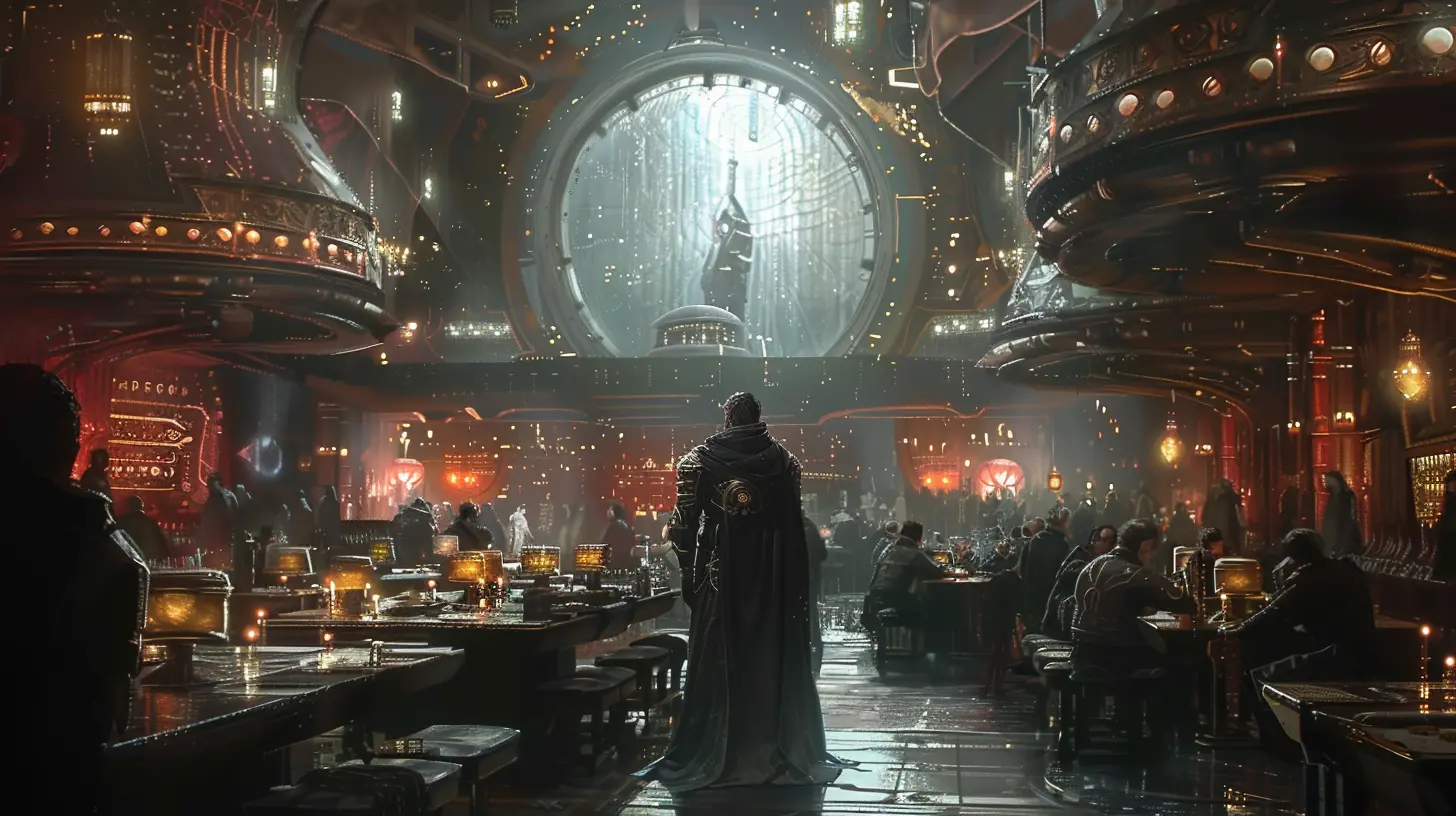20 March 2025
If you’re a fan of role-playing games (RPGs), you know that dialogue is the glue that holds the whole experience together. Whether you're making pivotal choices that impact the story or engaging in casual banter with random NPCs, the way dialogue is handled can make or break the game. But let’s be real—how many times have you had to sit through dull, robotic conversations that feel more like filling out a form than actually talking to someone?
This is where immersive dialogue systems come in. Game developers are stepping up their game (pun intended) to create realistic, meaningful interactions that don’t just feel like a checklist of options but an actual conversation. So, let’s dive into how these systems are evolving and what it means for the future of RPGs. 
Why Do Dialogue Systems Matter in RPGs?
Alright, buckle up—here's the obvious truth: RPGs are about role-playing. Shocking, I know. But seriously, dialogue is one of the main avenues through which players interact with the game’s world and characters. A great dialogue system pulls you in, makes you care, and lets you feel like YOUR choices matter. A bad one? Well, it snaps you right out of the experience faster than a loading screen in a 2004 game.Think about games like Mass Effect, Skyrim, or Disco Elysium. These games shine because the dialogue feels alive. The best RPGs use conversations not just to deliver exposition, but to immerse you in the story, challenge your morals, and make you feel genuinely connected to the world around you. 
The Evolution of Dialogue Systems
1. From Static to Dynamic Conversations
Back in the day, dialogue was pretty straightforward. Developers threw a few lines of text your way, and you picked from a handful of responses. It felt more like filling out a survey than actually chatting. Fast forward to now, and we’re seeing much more dynamic systems.Games like The Witcher 3: Wild Hunt introduced timed dialogue choices that added urgency to conversations. You couldn’t sit there forever weighing your options—you had to react, much like in real life. This kind of system doesn’t just make dialogues more dynamic; it makes them stressful in the best way possible.
2. Branching Narratives and Choice Impact
Remember how frustrating it was when you realized the "choices" in certain games didn’t actually mean squat? Yeah, we’ve all been there. Modern RPGs are upping the ante by ensuring that choices in dialogue have real consequences.Take Detroit: Become Human, for example. Every word you say matters, shaping not just individual character relationships but the entire story arc. One wrong move in a conversation might lead to a completely different ending. These branching narratives keep the stakes high and the players engaged.
3. AI-Driven Conversations
Here’s where things get fancy. With the rise of AI and machine learning, some RPGs are experimenting with AI-driven dialogue systems. This means NPCs can "remember" past conversations, adapt their tone based on your previous actions, or even react to things you’ve done elsewhere in the game.For instance, in Cyberpunk 2077, the choices you make in earlier missions can completely change how characters talk to you later on. It feels less like you’re picking from pre-set choices and more like you’re genuinely influencing the world around you. 
Building Better Conversations: What Makes a System Immersive?
Now that we’ve established why dialogue systems are crucial, let’s get into the nitty-gritty. What makes a conversation actually immersive?1. Contextual Responses
Ever talk to an NPC and get a response that feels totally unrelated to what you just said? It’s like texting someone, "Where are you?" and they reply, "Great weather we’re having." Immersion ruined.Good dialogue systems are all about context. NPCs need to respond not just to what you say, but how you say it, and even when you say it. For example, in Red Dead Redemption 2, NPCs will comment on your appearance, the time of day, or even the weather. These small details make the world feel alive.
2. Emotional Depth
Flat, robotic responses? No thanks. Conversations should have emotional weight—they should make you feel something. Whether it’s a heartfelt confession, a tense stand-off, or even a light-hearted joke, dialogue should evoke emotion.For instance, think about the heartbreaking "I’m Commander Shepard, and this is my favorite store on the Citadel" moment in Mass Effect. Okay, maybe that wasn’t emotional, but you get my point.
3. Natural Flow
Have you ever had a conversation in a game that felt... scripted? Like the developers just slapped some lines together and called it a day? Yeah, us too. Great dialogue flows naturally. It feels like a conversation you could actually have.Games like Firewatch nail this. The back-and-forth between the two main characters feels so real, you sometimes forget you’re playing a game. 
The Role of Voice Acting and Facial Expressions
Dialogue isn’t just about words—it’s also about how those words are delivered. Bad voice acting can ruin even the best-written lines (looking at you, early 2000s RPGs).Games like The Last of Us Part II set the gold standard here. The voice acting and facial animations are so good, you can feel the tension, sorrow, or humor in every line. It adds an extra layer of immersion that text alone just can’t deliver.
Challenges in Creating Immersive Dialogue
Alright, so building a great dialogue system sounds amazing, but it’s not all sunshine and rainbows. There are a few hurdles developers face:1. Time and Budget: Crafting nuanced dialogue systems takes time—and let’s be honest, game devs don’t exactly work 9-to-5 jobs. Add voice acting and motion capture into the mix, and costs can skyrocket.
2. Player Freedom vs. Developer Constraints: Developers want players to feel like they have unlimited freedom, but they also need to keep the story on track. Balancing these two is no small feat.
3. Localization: Translating witty, nuanced dialogue into 20 different languages? Yeah, good luck with that.
What’s Next for Dialogue Systems in RPGs?
So, what does the future hold? Well, buckle up, because things are about to get wild. With advancements in AI, we could start seeing truly adaptive conversations that feel completely unique to each player. Imagine talking to an NPC who can respond to your exact phrasing or even understands sarcasm (finally!).We might also see more integration of voice recognition tech, where you can actually speak to NPCs instead of choosing from pre-written options. Just hope your mic doesn’t pick up your dog barking in the background.
The ultimate goal? To make dialogue systems so seamless and natural that you forget there’s a system in the first place.
Final Thoughts
Immersive dialogue systems are the unsung heroes of RPGs. They’re not just about delivering exposition—they’re about creating a world you can lose yourself in. As technology evolves, so do the ways developers can make conversations feel real, emotional, and meaningful. The best systems don’t just tell you a story—they let you live it.So, the next time you’re chatting with an NPC, take a moment to appreciate the sheer amount of work—and love—that went into making that conversation feel real.







Aaron McPhail
Depth matters; choice enhances player immersion.
March 31, 2025 at 4:04 PM